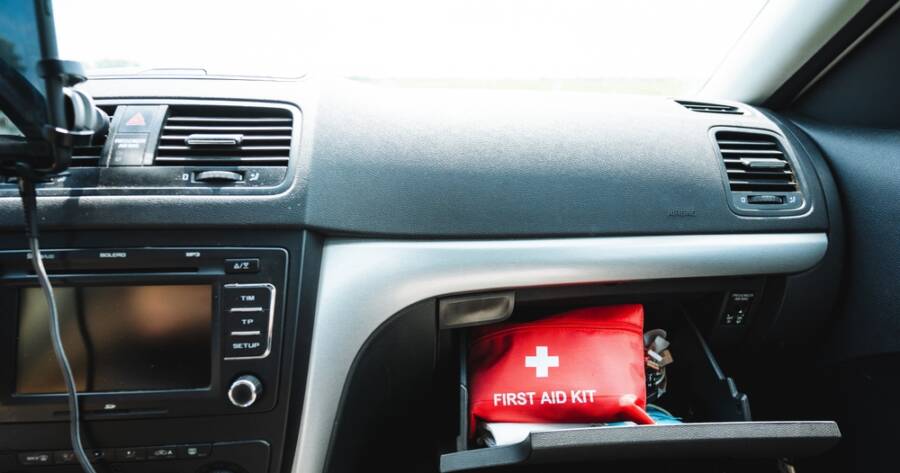Your glove compartment isn’t just for random receipts and forgotten sunglasses. It’s a critical space for storing essentials that can make or break your driving experience. Whether it’s crucial documents, safety tools, or everyday conveniences, keeping your glove box organized saves time and stress when you need something fast. The goal is to strike a balance between preparedness and practicality, ensuring that your must-haves are always within reach without cluttering the space.
Essential Documents You Should Never Leave Behind
Your glove compartment should always house the most important paperwork related to your vehicle. This includes your car’s registration, proof of insurance, and a copy of your driver’s license if you regularly switch vehicles. Keep these documents in a labeled, waterproof folder to protect them from spills or dirt. Having everything organized means you won’t be scrambling during a traffic stop or accident.
It’s also wise to include a copy of your vehicle’s manual, as well as any roadside assistance information. If you’ve had recent maintenance or repairs, keeping those receipts handy can be useful if an issue arises. Keeping essential documents in order ensures you’re prepared for any situation, whether it’s a routine checkpoint or an unexpected breakdown.
Safety and Emergency Items: Be Prepared for the Unexpected
Even if you don’t think about emergencies every day, being prepared is key. Store a small first aid kit with basics like bandages, antiseptic wipes, and pain relievers. A compact multi-tool or Swiss Army knife can be invaluable for quick fixes or cutting a stuck seatbelt. Don’t forget a small flashlight with extra batteries–it’s crucial for nighttime situations or looking under the hood.
Also, consider keeping a whistle, which can signal for help if your phone dies. A spare phone charger or battery pack is also smart to have on hand. If you frequently drive in cold climates, adding hand warmers can be a lifesaver if you’re stranded. Thinking ahead about potential emergencies means you’ll be more equipped to handle anything that comes your way.
Maintenance Must-Haves: Keep Your Car Running Smoothly
Your glove compartment is a handy place for small maintenance items that don’t belong in the trunk. Carry a tire pressure gauge to ensure your tires are always properly inflated. A small bottle of window cleaner and a microfiber cloth can help keep your windshield clear and glare-free. If you live in an area prone to ice, a compact ice scraper is also a must.
Consider adding a pair of work gloves for quick roadside fixes, especially if you’re dealing with a hot or dirty engine. It’s also a good idea to have a small funnel for adding fluids like oil or coolant. Keeping these practical items within reach helps you tackle minor maintenance issues without digging through your entire car.
Comfort and Convenience: Little Things That Make a Big Difference
Sometimes it’s the small comforts that make your drive more pleasant. Keep a travel-sized pack of tissues or wet wipes for spills or quick cleanups. A few spare face masks can be helpful in a pinch. If you’re prone to allergies or motion sickness, having a small bottle of hand sanitizer and some nausea relief medication can make long drives more bearable.
Storing some basic snacks like granola bars or nuts can be a lifesaver during unexpected delays. Don’t forget to keep a few pens and a small notepad—they’re handy for jotting down directions or contact info after a fender bender. Having these essentials on hand makes everyday drives and unexpected situations a little less stressful.
Personal Protection and Safety Gear
Personal safety is important, especially if you frequently travel alone. Keep a small canister of pepper spray or a personal alarm within reach. If you feel uncomfortable during a situation, having quick access to self-defense tools can provide peace of mind. A car escape tool that combines a seatbelt cutter and window breaker is also a smart addition.
It’s also useful to store a printed list of emergency contacts, especially if your phone is lost or dead. Include the numbers for family members, your insurance provider, and roadside assistance. This backup list ensures that you can still reach out for help when needed, even without your usual tech.
Tech and Navigation Essentials
If your car doesn’t have built-in GPS, keeping a foldable paper map or printed directions can be a game-changer during a phone outage. A spare charging cable and car adapter are crucial for keeping your devices powered, especially during long trips. Consider adding a phone mount for hands-free navigation and a small Bluetooth adapter if your car stereo lacks modern connectivity.
A pair of sunglasses is also essential–glare can be a major hazard, especially during sunrise or sunset drives. Store them in a protective case to prevent scratches. Whether you’re driving across town or across the country, these tech-friendly additions make each trip a bit more comfortable and stress-free.
Stay Ready, Stay Safe
Your glove compartment is more than just a catch-all for clutter–it’s a space that can be thoughtfully organized to enhance your safety and convenience. By keeping essential documents, safety tools, and a few personal comfort items on hand, you ensure that you’re ready for whatever the road throws your way.
A little planning today means smoother, less stressful journeys tomorrow. Taking the time to curate your glove box can make every drive feel just a bit more secure and comfortable.

